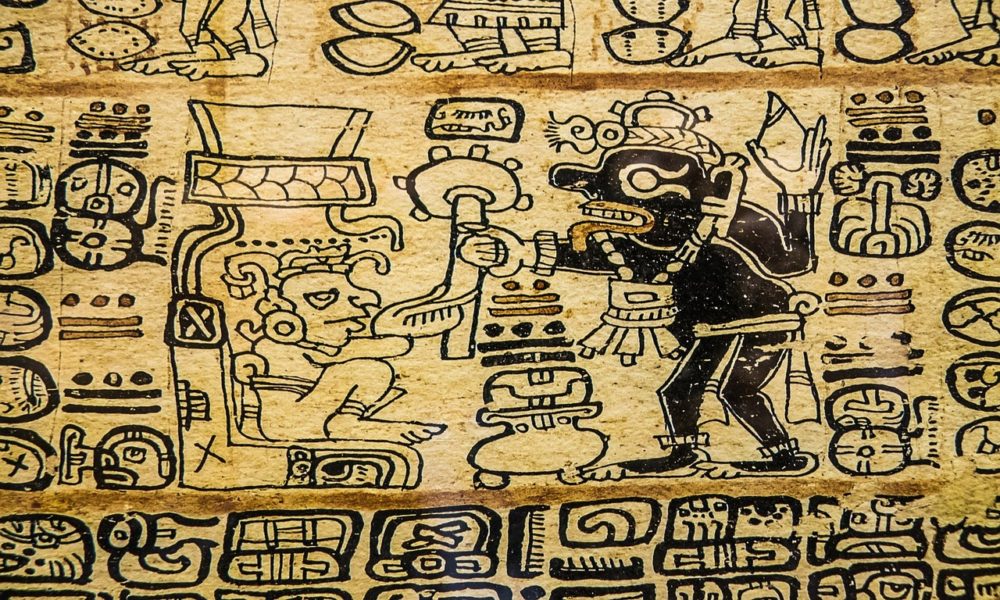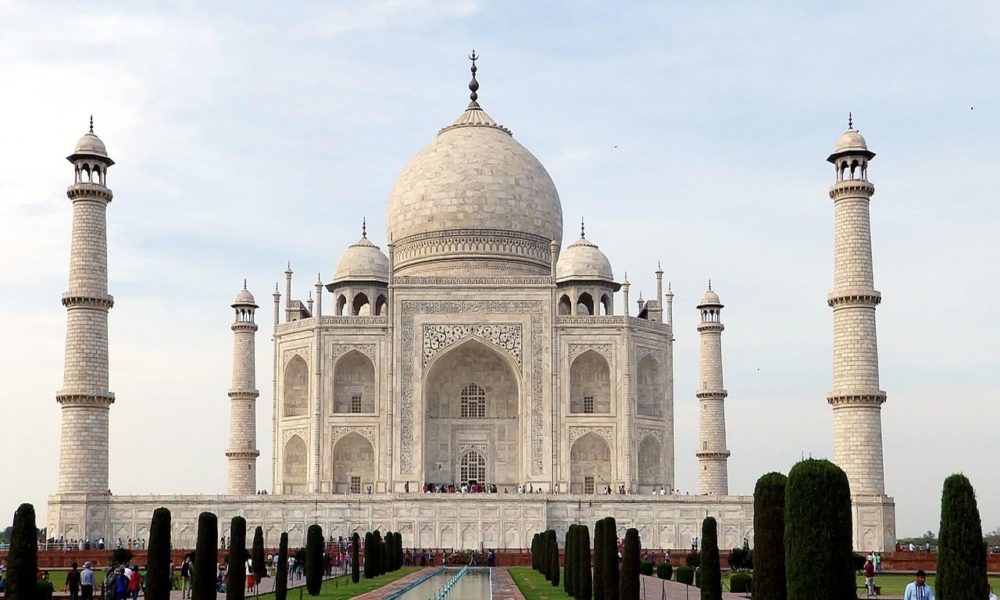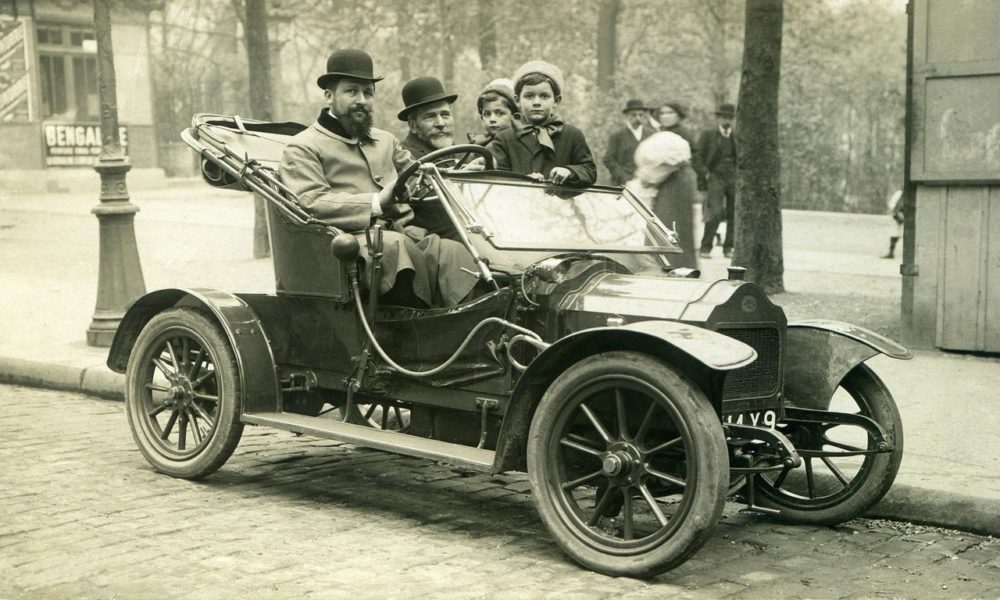The Ultimate AP World Timeline
8 min read•may 9, 2022
K
Katie Moore
AP World History: Modern 🌍
577 resourcesSee Units
Full Course Review for AP World History
Join the AP World History 5-Hour Cram Finale for a comprehensive last minute cram session covering the entire WHAP curriculum including every unit, every time period, and every type of question you will come against during the exam. After the stream, invite your friends to a study with me online session to discuss any of your last-minute questions to help you feel more confident before the big day!

Here is a breakdown of the review schedule and timeline:
- 30 min - Overview (Sorting by theme, region, and time periods)
- 1 hour - 1200-1450 CE
- 1 hour - 1450-1750 CE
- 1 hour - 1750-1900 CE
- 1 hour - 1900-Present
- 30 min - Final thoughts (Time management, strategies, and pep talk)
Historical Period 1: Units 1 and 2 (1200 to 1450)

Photo courtesy of Carabo Spain from Pixabay
- 750-1258 -- Abbasid Caliphate
- ⚡ Watch: AP World History - 🎥 Dar-al-Islam in the Global Middle Ages
- 960-1279 -- Song Dynasty
- Filial piety, Neo-Confucianism, Buddhism.
- Grand Canal expanded.
- Heavy use of champa rice, which was resistant to drought.
- This was a lot of work to irrigate, so there was a heavy reliance on farmers.
- Lots of steel and porcelain exports.
- Artisans made porcelain.
- Used paper money.
- 1095-1492 -- Crusades
- Series of "holy wars" where Christians tried to take back Muslim land.
- 1206-1526 -- Delhi Sultanate
- Mostly Turkish people who had converted to Islam (outside of the caliphate).
- Some blending of Hindu and Islamic traditions.
- 1206-1277 -- Genghis Khan rules
- 1215 -- Magna Carta signed
- Guaranteed citizens right to a fair trial.
- 1258 -- Mongols sack Baghdad, which was the end of the Abbasid Caliphate
- 1271-1285 -- Failed Mongol invasion of Japan
- 1271-1295 -- Marco Polo's travels
- 1279 -- Peak of Mongol rule and Pax Mongolica on the Silk Roads
- ⚡ Watch: AP World History - 🎥 Mongols
- 1279-1368 -- Yuan Dynasty in China (Mongol rule)
- Practiced religious tolerance.
- Traditional Chinese arts and literature grew.
- 1299-1923 -- Ottoman Empire
- ⚡ Watch: AP World History - 🎥 Expanding Empires in the Early Modern Period
- Highly bureaucratic form of government.
- Used the devshirme system that took Christian boys at a young age and trained them to serve the state in positions such as Janissaries.
- Though it was officially Islamic, the Ottoman Empire ruled over millets (or communities that were not Islamic) who had to pay the jizyah tax to practice their own religion.
- Used firearms.
- ~1300-1600 -- Italian Renaissance
- 1324 -- Mansa Musa's pilgrimage
- 1325 -- Tenochitlan founded
- 1325-1354 -- Ibn Battuta's travels
- 1346 -- Black Death breaks out in China
- 1347-1388 -- Black Death in Europe
- 1351-1368 -- Red Turban Rebellion in China
- 1368-1644 -- Ming Dynasty
- Built Forbidden City.
- Revived civil service exam.
- 1405-1433 -- Zheng He's voyages
- 1428-1521 -- Aztec Empire
- ⚡ Watch: AP World History - 🎥 Continuities in the Americas After 1200 CE
- Built chinampas-- "floating gardens" or islands for agriculture over their swampy land.
- Human sacrifice.
- Advanced economy, trade, and governmental systems.
- Gender parallelism.
- 1438-1533 -- Inca Empire
- Used quipus (knotted cords) in place of writing.
- Extensive road system.
- Terrace farming.
- Used mita system as labor system-- everyone had to work periodically for the state in some form (later taken by Spanish).
- Gender parallelism.
- 1440 -- Swahili city-states flourish
- 1440 -- Printing press invented
- 1400s -- Caravel invented
- 1441 -- Start of Atlantic slave trade
Historical Period 2: Units 3 and 4 (1450 to 1750)

Photo courtesy of joakant from Pixabay
- 1453 -- Ottoman conquest of Constantinople
- 1450s-1480s -- Russia overthrows Mongol rule in Moscow
- 1464-1591 -- Songhai Empire
- 1469 -- Sikhism begins
- 1491 -- Reconquista of Spain
- 1492 -- Columbus sails to the "New World"/Spain begins to colonize the Americas/Columbian Exchange begins
- Spanish Empire used the hacienda and encomienda system, as well as a caste system based on race.
- Columbian Exchange
- ⚡ Watch: AP World History - 🎥 Columbian Exchange
- "New World" trades corn, potatoes, tobacco, and rubber.
- "Old World" trades livestock, smallpox, influenza, and coffee (the "Old World" side of this exchange will lead to the death of millions of Native Americans who are not immune to these diseases).
- 1497 -- Portugal starts colonizing the Americas
- 1498 -- Vasco da Gama reaches India
- 1501-1722 -- Safavid Empire
- Largest Sh'ia empire at the time-- at odds with the Sunni Ottoman Empire.
- 1534 -- First enslaved peoples come to the Americas
- 1509-1542 -- Nzinga Mbemba (Afonso I) rules the Kongo Empire
- 1517 -- Protestant Reformation begins with Martin Luther's 95 Theses
- 1519-1521 -- Magellan sails around the world (and dies in the Philippines)
- 1526-1748 -- Mughal Empire
- 2 most notable rulers: Akbar and Aurangzeb.
- Akbar practiced religious tolerance, inviting people of different religions to debate with him and removing the jizyah tax. He also supported the arts.
- Aurangzeb, on the other hand, persecuted Hindus and Sikhs and contributed to the empire's decline.
- Taj Mahal built during this time.
- 1534 -- France begins to colonize the Americas
- 1543 -- Copernicus shares ideas about a heliocentric universe
- 1545 -- Discovery of silver at Potosi mine
- 1550-1700 -- Scientific Revolution
- 1552 -- Russian Empire begins
- 1556-1605 -- Akbar the Great rules the Mughal Empire
- 1571 -- Founding of Manila and beginning of global trade
- 1595 -- Fluyt invented
- 1600 -- British East India Company founded
- 1600-1826 -- Tokugawa shogunate
- 1602 -- Dutch East India Company founded
- 1607 -- Britain begins colonizing the Americas with Jamestown
- 1623-1641 -- Tokugawa Iemitsu rules Japan and establishes Japanese isolationism
- 1632 -- Taj Mahal built
- 1643-1715 -- Louis XIV rules France; absolute monarchy in France
- 1652 -- Dutch Boers colonize South Africa
- 1687 -- Newton's Principia published
- 1688-1911/12 -- Qing (Manchu) Empire
- Foreigners (the Manchu) rule China.
- New elite blend their ideas with old Han traditions.
- Enforce a single hairstyle and dress.
- Largest of the Chinese empires.
- 1689-1725 -- Peter the Great rules and westernizes Russia
- 1689 -- Glorious Revolution in England
- 1698 -- Early steam engine invented
- 1715-1789 -- The Enlightenment
- ⚡ Watch: AP World History - 🎥 The Age of Revolutions
Historical Period 3: Units 5 and 6 (1750 to 1900)

Photo courtesy of WikiImages from Pixabay
- 1756-1763 -- 7 Years' War
- 1757 -- Battle of Plassey begins English colonization in India
- 1760-1789 -- First Industrial Revolution
- 1765-1783 -- American Revolution
- Declaration of Independence would inspire others for many years.
- 1776 -- Wealth of Nations by Adam Smith published
- 1789-1795 -- French Revolution
- Incredibly gruesome.
- ⚡ Watch: AP World History - 🎥 Atlantic Revolutions
- 1791-1804 -- Haitian Revolution
- Complete upheaval of social structure.
- 1792 -- Vindication of the Rights of Woman by Mary Wollstonecraft published
- Beginning of feminism.
- 1793 -- Eli Whitney invents the cotton gin
- 1799-1815 -- Napoleonic reign in France
- 1806-1826 -- Latin American Revolutions
- Many led by Simon Bolivar.
- 1815 -- Congress of Vienna
- 1839-1860 -- Opium Wars
- Establishes immense European influence over China.
- 1839-1876 -- Tanzimat reforms in the Ottoman Empire
- 1845-1849 -- Irish Potato Famine
- Cause of much Irish immigration west.
- 1848 -- Communist Manifesto published
- 1848 -- Seneca Falls Convention
- 1850-1864 -- Taiping Rebellion
- 1854 -- Commodore Perry opens Japan
- 1857 -- Sepoy Rebellion in India
- 1859 -- Suez Canal built by Britain in Egypt
- 1861 -- Russian serfs emancipated
- 1863 -- Emancipation Proclamation in U.S.
- 1865-1909 -- King Leopold rules the Congo; commits human rights crimes to get rubber
- ⚡ Watch: AP World History - 🎥 Unit 6 Review: Modern Imperialism
- 1868 -- Meiji Restoration in Japan
- 1870-1914 -- Second Industrial Revolution
- 1871 -- Germany unified under Otto von Bismarck
- 1885 -- Berlin Conference
- Beginning of European "scramble for Africa".
- 1890s -- European spheres of influence in China
- 1896 -- Battle of Adowa (Ethiopians defeat Italians)
- 1898 -- Spanish-American War
- U.S. acquires Guam, Philippines, Cuba, and Puerto Rico.
- 1899 -- Boer War
- 1899-1902 -- United Fruit Company established
- 1899-1901 -- Boxer Rebellion
Historical Period 4: Units 7, 8 and 9 (1900 to Present)
Photo courtesy of ANIL OZTURK from Pixabay
- U.S. takes control/continues constructing the Panama Canal
- 1904-1905 -- Russo-Japanese War
- 1906 -- Muslim League founded
- 1910-1920 -- Mexican Revolution
- 1914-1918 -- World War 1
- ⚡ Watch: AP World History - 🎥 World Wars I & II
- 1915-1917 -- Armenian genocide
- 1917 -- Russian revolution
- 1917 -- Zimmerman telegram
- Generated widespread American support for getting involved in WWI.
- 1920 -- League of Nations founded
- 1923 -- Turkey founded
- 1927-1936 -- Chinese Civil War
- 1929-1933 -- Great Depression
- 1931 -- Japanese invasion of Manchuria
- 1933 -- New Deal by FDR introduced in U.S.
- 1936-1938 -- Great Purge in USSR
- Millions arrested/killed who were viewed as "enemies to state".
- Put many in labor camps (gulags)
- 1939-1945 -- World War 2
- Pearl Harbor attack -- 1941
- 1941-1945 -- The Holocaust
- ⚡ Watch: AP World History - 🎥 Mass Atrocities After 1900
- 1941-1953 -- Stalin in power in USSR
- 1943-1978 -- Green Revolution
- 1945-1950 -- Chinese Communist Revolution
- 1945 -- Hiroshima and Nagasaki bombings
- 1945 -- United Nations created
- 1946 -- Philippines
- 1947 -- Partition of India; independence for India and Pakistan
- Gandhi leads peaceful protests for independence.
- Partition itself was bloody.
- 1947 -- Japanese Empire ends
- 1947 -- Truman Doctrine
- 1947-1991 -- Cold War
- Capitalism (U.S./Western Europe) against communism (USSR and China).
- Lots of suspicion about motives of the other side.
- Tensions in proxy wars, like in Korea and Vietnam.
- ⚡ Watch: AP World History - 🎥 The Cold War
- 1948 -- Israel founded
- 1949 -- NATO established
- 1950-1953 -- Korean War
- 1953-1959 -- Cuban Revolution
- 1955 -- Warsaw Pact
- 1955 -- Bandung Conference
- 1955-1975 -- Vietnam War
- 1955 -- Polio vaccine approved for use
- 1956 -- Khrushchev gains power in USSR; begins de-Stalinization
- 1958-1962 -- Great Leap Forward
- Mao Zedong's idea to boost Chinese economy.
- Combined farmers into small communes-- peasants not allowed to own land.
- Economic downturn.
- 20 million died (mostly from hunger).
- 1960 -- "Year of Africa"
- 1961 -- Dwight D. Eisenhower uses term "military-industrial complex"
- 1962 -- Cuban Missile Crisis
- 1966-1976 -- Cultural Revolution in China
- Mao Zedong's attempt to stop influence of capitalism.
- Shipped many off to countryside for "re-education".
- 1973-1990 -- Pinochet in Chile
- 1977-1989 -- Deng Xiaoping takes power in China and begins economic reforms
- 1979 -- Iranian Revolution
- 1989 -- Tiananmen Square Protests
- 1989 -- Fall of the Berlin Wall
- 1990 -- Fall of USSR
- 1990 -- End of Apartheid in South Africa
- ⚡ Watch: AP World History - 🎥 Decolonization
- 1994 -- Rwandan genocide
- 2001 -- 9/11 terrorist attacks
- 2011 -- Arab Spring
- ⚡ Watch: AP World History - 🎥 Globalization
Browse Study Guides By Unit
🐎Unit 1 – The Global Tapestry, 1200-1450
🐫Unit 2 – Networks of Exchange, 1200-1450
🕌Unit 3 – Land-Based Empires, 1450-1750
🍕Unit 4 – Transoceanic Interactions, 1450-1750
✊🏽Unit 5 – Revolutions, 1750-1900
🚂Unit 6 – Consequences of Industrialization, 1750-1900
💣Unit 7 – Global Conflict, 1900-Present
🥶Unit 8 – Cold War & Decolonization, 1900-Present
✈️Unit 9 – Globalization, 1900-Present
✏️Frequently Asked Questions
🚀Thematic Guides
🗺Regional Guides
🤓Historical Thinking Skills
🧐 Multiple Choice Questions (MCQ)
📋Short Answer Questions (SAQ)
📝Long Essay Questions (LEQ)
📑Document Based Questions (DBQ)

Fiveable
Resources
© 2023 Fiveable Inc. All rights reserved.